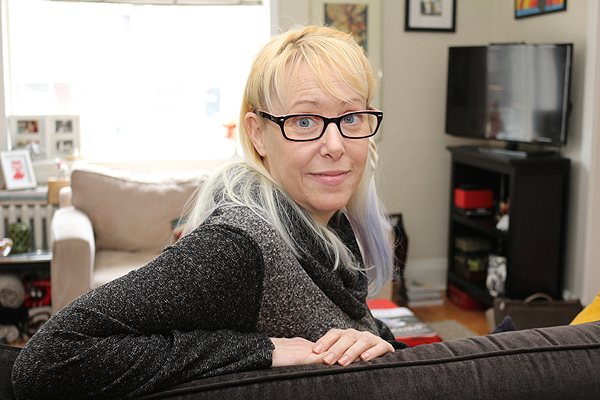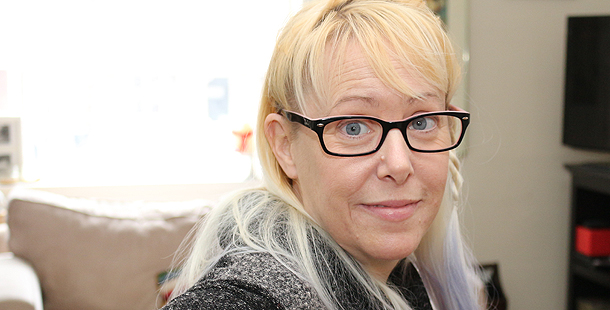Canadian Family editor could face $700K price tag for Soliris if insurance runs out

CLOSE TO HOME: Jennifer Hamilton, 43, is hoping the Canadian and Ontario governments can come to an agreement on how to cover the world’s most expensive drug, Soliris, for her aHUS treatment.
Canada has a “fantastic” healthcare system, but there’s one aspect that has fallen short: the cost of medications.
That’s the belief held by Jennifer Hamilton, the editor of the online publication Canadian Family. She tucks her legs under her light frame, pulls her blonde hair behind her shoulders while seated in the front room of her North Toronto home.
She suffers from a rare, life-threatening disease called atypical hemolytic uremic syndrome (aHUS). It was originally diagnosed in Spring 2013, after she was misdiagnosed with thrombotic thrombocytopenic purpura (TTP) in 1999.
The 43-year-old mother has plenty of background when it comes to healthcare. She went to school to become a nurse. To be fair, the genetic test to diagnose aHUS is relatively new.
The only medication for aHUS is Soliris, but without insurance coverage, the drug will cost the 30 patients who have the disease $700,000 a year. Soliris is infamously known as the world’s most expensive drug.
Hamilton’s an advocate for people with rare diseases, but is reticent to be the voice of the particular cause.
“I think it’s important that people know about it, understand it, and that the government take responsibility for it, the way they’ve taken responsibility for diabetes campaigns, drunk driving campaigns,” Hamilton says. “They put so much money into HIV research but they leave people like me out in the cold.
“This drug changed my entire life, what happens if I lose my insurance coverage? I’m out. I’m done. Alexion is generous, but not that generous.”
Right now, Hamilton’s husband’s insurance covers the cost of Soliris, but not everyone is so lucky, even if the government is suggesting the price be lowered. Trillium, the province’s drug program, only covers the cost of the medication for patients with paroxysmal nocturnal hemoglobinuria (PNH).
In September, 2015, Alexion, the maker of Soliris, filed a motion in Federal Court, saying the government of Canada has no authority over the company’s price.
The course of treatment for those few with aHUS in Canada face an expensive road. If patients are unable to afford Soliris they receive apheresis treatment, Rituximab (another expensive medication), Cylclophosphamide and eventually a splenectomy.
“Regardless of what it costs, and what you want to pay for it, the government and Alexion needs to stop putting the patients in front of the firing squad and say let’s divvy this up or figure it out for the 30 patients in Ontario, or however are in Canada, so they can live their lives,” Hamilton says. “I understand Alexion, they did the research … but people who need them should be able to get them.
“You can’t develop a drug and say, ‘Well, give us $1 million, and we’ll save your life’.”

